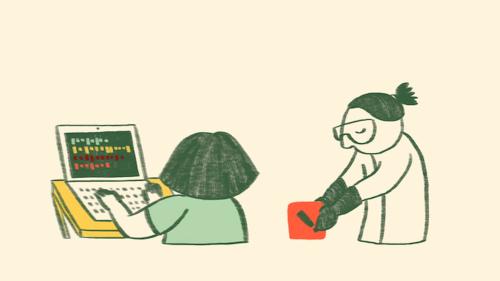Last week, I got to feel absolutely hopeful about the future of America media. This rare experience made me reflect positively on how this nation’s youth will help transform the Fourth Estate.
As part of the Brookings Mountain West partnership between the Brookings Institution and the University of Nevada, Las Vegas (UNLV), I made a trip to Southern Nevada to meet with community leaders, present ongoing research, and, most importantly, teach a few courses. At Brookings, I don’t have too many opportunities to work with students, surely not as many as my friends and former colleagues who teach regularly at universities.
For this trip, my colleague Bill Brown, the assistant director of Brookings Mountain West, saw an opportunity. He was familiar with my recent project on explanatory journalism and believed the project offered a great opportunity to reach out to faculty in UNLV’s journalism and media studies school to see how the topic resonated with them and their students. I delivered a guest lecture to three classes that gathered for the occasion: reporting, photojournalism, and communications. I also spoke to an advanced reporting class in a forum that functioned as a press scrum on any topic relevant to my research. Finally, I appeared on a political news show on UNLV-TV, allowing me to see the professionalism of UNLV students on both sides of the television camera.
To say I was impressed with the students, faculty, facilities, and the overall level of talent would be an understatement. The students were engaged, thoughtful, prepared, and well-versed on the topics relevant to each discussion. Unlike the typical stock questions I get asked every day, their questions were probing and pushed me to do more than regurgitate talking point-style answers.
Instead, they made me think.
Most importantly, many of the students expressed the same frustrations with certain aspects of media that you hear from the rest of the public. The students’ explicit desire to improve the media’s capacity and delivery of the news was not some wide-eyed, idealistic refrain from a group of kids, not yet jaded by the industry’s realities. Instead, the students discussed the challenges, incentives, and structures that have produced the current state of media in the U.S. They sought answers about how to overcome each of those realistically, personally, and as a group.
I was in no position to deliver answers, but the UNLV students certainly are. They are young professionals trying not simply to hone their craft, but to improve the news industry. Often on this blog, our desire to try to fix what ails American government manifests by overemphasis on what is broken, and the fixes prescribed are internal to government operations. In reality, media’s ability to address some of the biggest challenges facing the current system is vastly understated. The next wave of young journalists sees addressing those challenges as part of their mission.
UNLV is not alone. Journalism schools all over the U.S. are training astute, forward-thinking, reform-oriented professionals who will eventually help transform media models, styles of reporting, and the means by which the public receives information. What was most inspiring about UNLV’s journalism and media studies program and its communications program was to see first-hand a group of students who are thinking in precisely the right way about changing the industry and what role they can play in that transformation. They are thinking both big and small about the future, and they do so not from a lofty perch provided by a long-pedigreed university program.
These students also have an organic springboard to make these changes happen. They are hardworking students, many of whom are first generation college students, being trained in an exciting media market. Las Vegas provides these students multiple centers of the news universe. The students live and work at ground zero in U.S. presidential elections, with the third and final presidential debate scheduled for the UNLV campus in October 2016. Their homes and jobs are in a swing state, in a large metro that is a global hub for tourism, gaming, and conventions. As a rapidly growing and diversifying metropolitan region, Las Vegas represents the next generation of American cities. No longer willing to be a tired cliché, Las Vegas has evolved from its gambling origins to develop additional economic sectors including retail sales, fine dining, alternative energy, drones and autonomous vehicles, health care, and more.
Take all that with the region’s track record of producing some of media’s rising stars like The Atlantic‘s staff writer Molly Ball (an alum of the Las Vegas Review Journal and Las Vegas Sun) and Washington Post‘s Amber Phillips (a Las Vegas Sun alum). These students are positioned to do well, not just for themselves, but for their industry and the communities in which they do and will work.
The next class from the UNLV journalism and media studies program is not going to single-handedly cure the problems facing media, politics, and society. But the lesson I took from my latest trip to Southern Nevada was a heartening one. The next time you criticize media, the next time you write off millennials, the next time you think a group of public university students can’t take on a system littered with problems, take a trip to Las Vegas and chat with the young professionals at the Greenspun College of Urban Affairs. If these students are the ones we’re wagering our future on, I’ll take the over.
The Brookings Institution is committed to quality, independence, and impact.
We are supported by a diverse array of funders. In line with our values and policies, each Brookings publication represents the sole views of its author(s).




Commentary
Is the media letting you down lately? Your odds look good in Las Vegas.
March 25, 2016